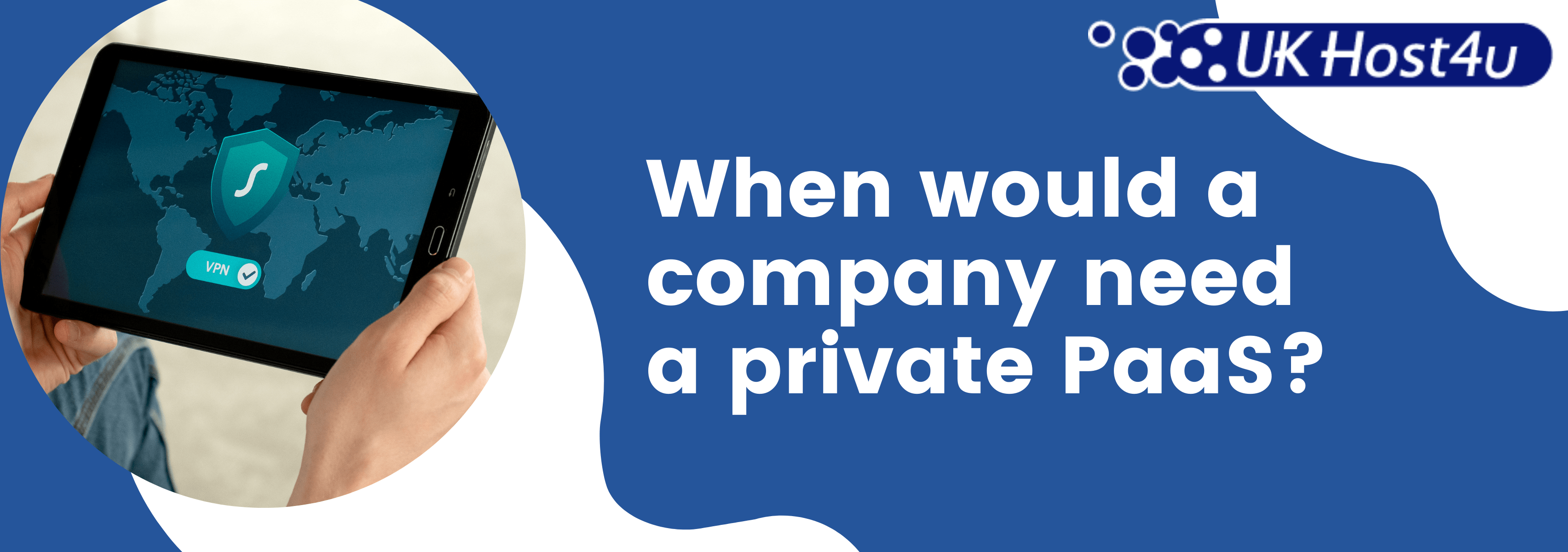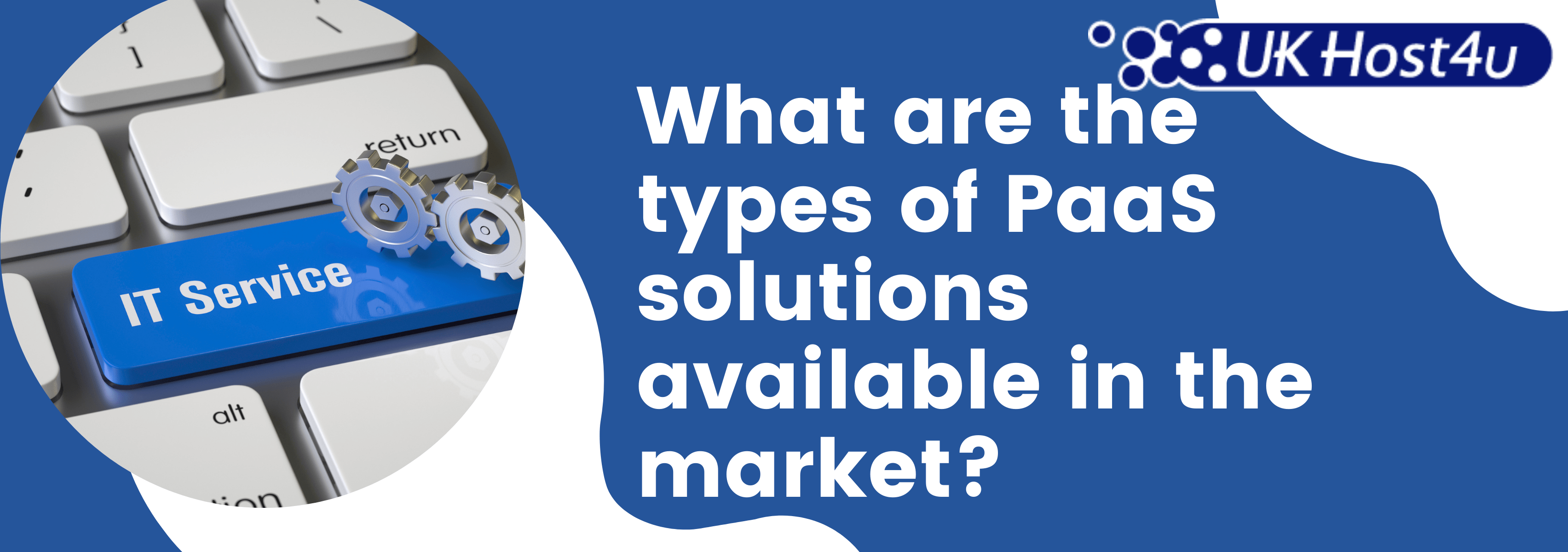Cloud Computing and Private PaaS: A New Era of Hosting

Cloud computing has revolutionized the way businesses collaborate, offering the ability to work seamlessly from anywhere in the world. It is also transforming how companies access hosting services, eliminating the need for physical infrastructure ownership. While many hosting services enable the sharing of websites, applications, or software globally, this isn’t always the ultimate goal for every organization.
Private Platform as a Service (PaaS) vendors fulfill a unique role in the PaaS sector. Unlike public cloud solutions, private PaaS setups allow companies to deploy software, applications, and more within the secure confines of a company firewall. This approach combines the benefits of cloud computing with enhanced security and privacy, making it an ideal solution for businesses with stringent security requirements.

What is the Definition of PaaS?
The term Platform as a Service (PaaS) refers to an environment where software applications can be developed, deployed, and accessed from anywhere in the world. It is a popular choice among application and software developers. Using the PaaS model allows individuals to resell their creations using the Software as a Service (SaaS) model.
PaaS provides an environment where development tools, databases, memory, and hardware resources are supplied by the PaaS provider. Developers can deploy their code on the cloud platform and run it without needing to install or configure hardware or software. This significantly reduces development time and offers scalability for applications.
A private PaaS is a cloud environment that can only be accessed within the confines of a private firewall. This setup helps protect an organization from data breaches while still allowing them to enjoy the benefits of cloud computing.

When Would a Company Need a Private PaaS?
Private Platform as a Service (PaaS) is a service that provides a secure platform for developing and deploying applications, accessible only to authorized users. This service is typically utilized by larger enterprises, whereas public PaaS is more popular among smaller companies.
Private PaaS offers more features and greater control compared to public PaaS. Companies can use their own infrastructure or leverage a private cloud setup, which is ideal for organizations that operate multiple sites. This setup ensures enhanced security, customization, and compliance with regulatory requirements.
With the shift towards hybrid working models and the increasing number of individuals working from home, the demand for private PaaS is expected to rise. Companies need to make their software available to employees from anywhere while maintaining strict security measures. A private PaaS allows for this flexibility, providing secure access to essential tools and applications.
Any company, large or small, can benefit from a private PaaS. The flexibility allows small startups to establish themselves in a secure environment and scale their private cloud as their requirements grow.

What are the Types of PaaS Solutions Available in the Market?
A Platform as a Service (PaaS) solution is an IT service that provides a platform and application programming interfaces (APIs) for customers to develop and run software and web services in the cloud. PaaS solutions include software development tools such as programming languages, compilers, libraries, frameworks, debuggers, and more.
PaaS solutions allow users to focus on their core tasks, such as designing and writing code, rather than managing the underlying hardware and operating system. Most PaaS vendors offer both public and private deployment options within a single infrastructure.
Types of PaaS Solutions
- Public PaaS
- Description: Public PaaS is hosted on the cloud provider’s infrastructure and is available to multiple users over the internet. This type of PaaS is suitable for businesses that require a cost-effective solution and do not need extensive customization.
- Benefits: Scalability, lower costs, and ease of use.
- Examples: Google App Engine, Microsoft Azure, AWS Elastic Beanstalk.
- Private PaaS
- Description: Private PaaS is hosted within a company’s own data center or private cloud environment. It offers the same benefits as public PaaS but with added security and customization options.
- Benefits: Enhanced security, compliance, and greater control over the environment.
- Examples: Apprenda, Red Hat OpenShift (when deployed privately).
- Hybrid PaaS
- Description: Hybrid PaaS combines elements of both public and private PaaS, allowing businesses to leverage the benefits of both environments. This solution is ideal for organizations that require flexibility in their deployment options.
- Benefits: Flexibility, optimized resource utilization, and the ability to handle varying workloads.
- Examples: IBM Cloud Foundry, Microsoft Azure Stack.
- Communication PaaS (cPaaS)
- Description: cPaaS provides a cloud-based platform for developers to add real-time communications features such as voice, video, and messaging into their applications without building backend infrastructure.
- Benefits: Enhanced communication capabilities, ease of integration, and cost savings.
- Examples: Twilio, Nexmo.
- Mobile PaaS (mPaaS)
- Description: mPaaS focuses on providing development environments for mobile applications. It includes tools and services specifically designed for mobile app development and deployment.
- Benefits: Streamlined mobile app development, integration with various mobile services, and faster time to market.
- Examples: Kinvey, AWS Amplify.
When selecting a PaaS solution, it is crucial to consider your specific needs, including security requirements, scalability, and the types of applications you are developing. By evaluating these factors, you can choose the most suitable PaaS solution that aligns with your business objectives and enhances productivity.

How Does PaaS Work and How Can It Help Me?
Platform as a Service (PaaS) allows developers to outsource the complex tasks of building, testing, and running their applications. When a company needs sophisticated software for internal use, a private PaaS service enables smooth operations and enhanced security.
PaaS operates on top of the Infrastructure as a Service (IaaS) layer to provide a ready-to-use environment for developers. It facilitates the creation of scalable applications that can adapt to the evolving needs of the company.
By adopting a hybrid public and private cloud model, IT departments can shift their focus from infrastructure management to optimizing processing and capacity. Choosing a PaaS model often includes this layer of planning, simplifying the overall management and deployment process.

How to Choose Between a Public or Private Platform
When deciding between public and private Platform as a Service (PaaS) solutions, several factors need to be considered. Security is often the primary reason for exploring a private cloud setup, but there are other distinct advantages to this vendor model.
Public PaaS
Public PaaS solutions can be particularly useful for startups that have yet to generate revenue and need to minimize their upfront investment. These solutions allow startups to quickly iterate on their product without the need to purchase hardware or software licenses. Additionally, public PaaS offers a good deal of flexibility because it is not tied down by long-term contractual commitments. This flexibility can be crucial for businesses that need to scale quickly or pivot their strategy based on market demands.
Private PaaS
Private PaaS solutions may be better suited for established companies that require more stability and less risk. These solutions come with higher costs but offer enhanced security and control over the environment. Private PaaS generally requires long-term commitments, providing the vendor with a steady revenue stream from its customers. There may also be infrastructure requirements if you choose to run a hybrid model of physical and cloud servers. This model allows for better customization and integration with existing systems, making it ideal for businesses with specific regulatory or compliance needs.
When choosing between public and private PaaS, consider your company’s size, budget, security needs, and long-term goals. By evaluating these factors, you can select the solution that best aligns with your business objectives and operational requirements.


